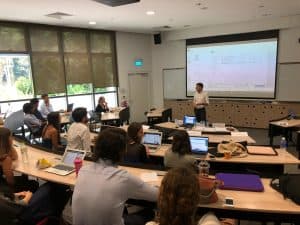As the mid-year mark approaches, our Working Groups continue to make progress in their respective areas of focus. In spite of the setbacks brought about by the COVID-19 pandemic, group calls and discussions remain as scheduled, with every intention to have deliverables ready for approval or presentation at the General Assembly 2020.
Final text for the proposed policy components and baseline reporting requirements, developed by the Policy Toolbox Working Group, have been proposed. The documents are being circulated for approval within the Working Group before being submitted to the Executive Committee. A pilot testing phase for the reporting requirements will be launched shortly after. More details on this will be released soon.
Along with the finalization of the Terms of References for the two pilot proposals, the Traceability and Transparency Working Group is also developing a budget and timeline for these pilot proposals, to be submitted to the Executive Committee for approval.
While there have been efforts between Working Groups revolving around calibration and aligning, the importance of alignment with all Working Groups is increasingly being recognized as important. Moving forward, the Strategy and Objectives Working Group will undertake a more coordinating role. This will see a Platform-wide effort to directly engage and align with the other Working Groups to better bring forward their strategies into the Theory of Change, understand their project plans and how to interact, and bring together input from all the Working Groups to support the development of Platform Key Performance Indicators (KPIs).
Within the Strategy and Objectives Working Group itself, work on filling out the Theory of Change continues. The Working Group is also liaising closely with consultant James Griffiths on his study on social risks following the presentation of a first draft to the Working Group for review.






